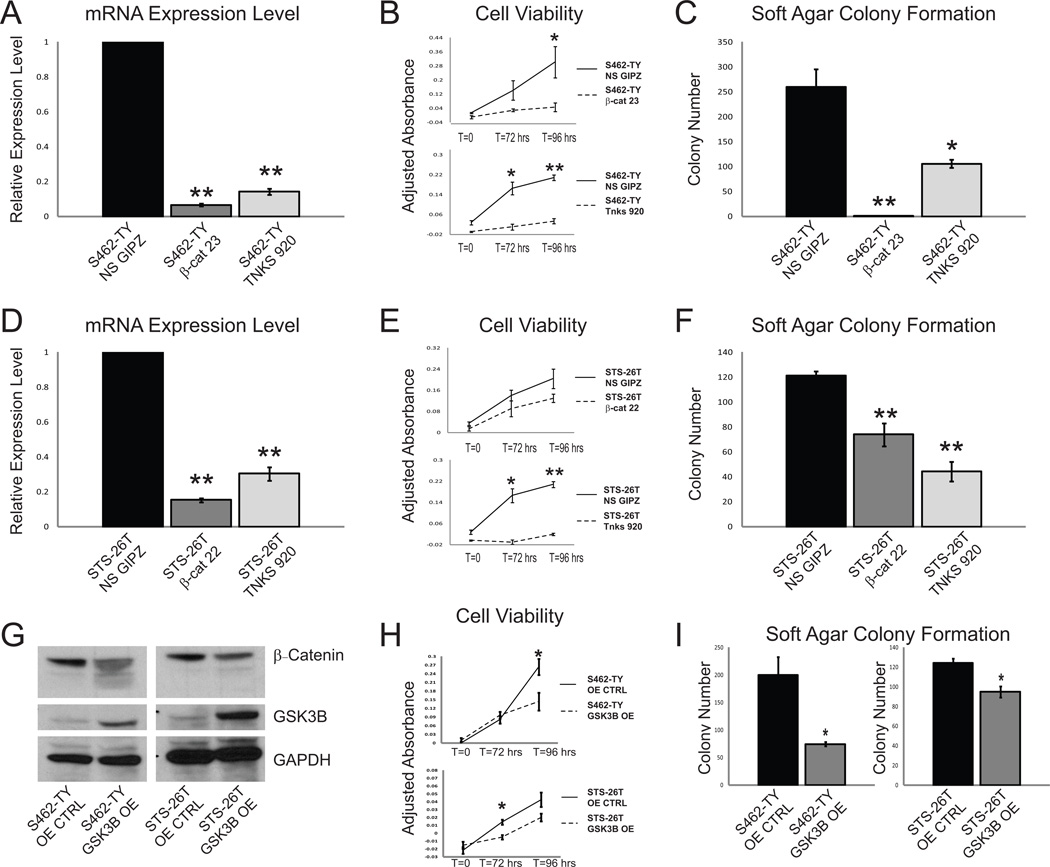Figure 5. NF1-associated and sporadic MPNST cell lines show a decrease in cell viability, soft agar colony formation, and xenograft tumor growth when Wnt/β-catenin signaling is down-regulated.
A. shRNA reduces β-catenin (β-cat 23) and TNKS (TNKS 920) expression levels in an NF1-associated MPNST cell line (S462-TY) compared to non-silencing shRNA (NS GIPZ) treated cells. B. Knockdown of β-catenin or TNKS results in a reduction in cell viability in the S462-TY cell line. C. Soft agar colony formation is reduced in an NF1-associated cell line (S462-TY) when β-catenin or TNKS levels are reduced. D. shRNA treatment results in a reduction of β-catenin (β-cat 22) and TNKS (TNKS 920) levels in a cell line derived from a sporadic MPNST (STS-26T) compared to non-silencing shRNA (NS GIPZ) treated controls. E. Knockdown of β-catenin or TNKS is sufficient to reduce cell viability in STS-26T cells. F. A reduction in β-catenin or TNKS expression reduces soft agar colony formation in this spontaneous MPNST cell line. G. Western blot analysis shows that overexpression of GSK3B results in the degradation of β-catenin protein in both an NF1-associated and sporadic MPNST cell lines (S462-TY and STS-26T). H. Overexpression of GSK3B decreases cell viability in S462-TY and STS-26T MPNST cell lines. I. Overexpression of GSK3B reduces soft agar colony formation in S462-TY and STS-26T MPNST cell lines. * p<0.05, **p<0.0001 unpaired T-test. Error bars represent SEM.

